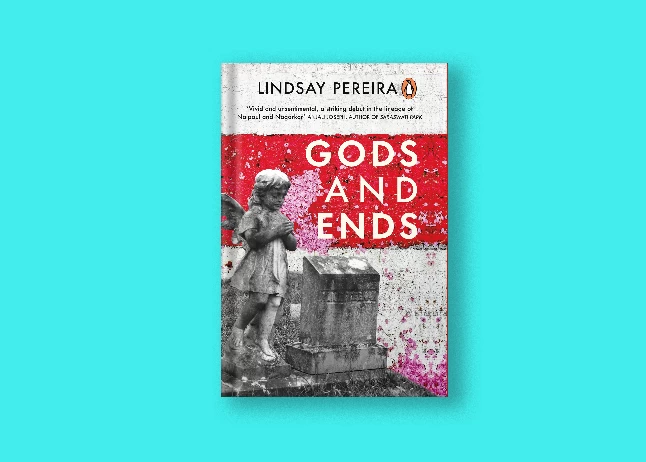Gods and Ends
By Lindsay Pereira
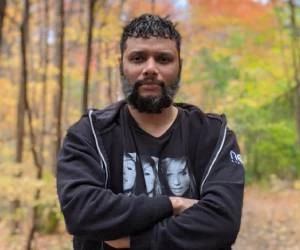
Lindsay Pereira is a journalist and editor. Born and raised in Bombay, he studied at St Xavier's College and the University of Mumbai and holds a PhD in literature for his work on gender attitudes implicit in nineteenth-century Indian fiction. He was co-editor with the late Eunice de Souza of Women's Voices: Selections from Nineteenth and Early-Twentieth Century Indian Writing in English, published by Oxford University Press. This is his first novel.
It is a long established fact that a reader will be distracted by the readable
content of a page
when looking at its layout.
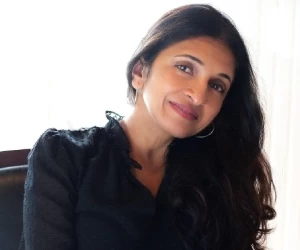
Brinda Charry came to the United States from India as a graduate student in 1999 and has been living here since. She is a novelist-turned-academic-returned-novelist. A specialist in English Renaissance literature (Shakespeare and contemporaries), she has published numerous books and articles in that field. The East Indian is her first novel published in the United States. She currently lives in Keene, New Hampshire, with her husband and dog.
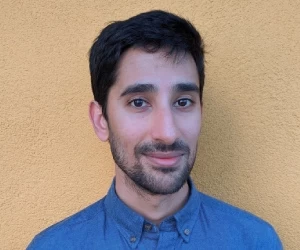
Bikram Sharma is a Bengaluru based writer. He completed an MA in Creative Writing from the University of East Anglia, and in 2016 he was awarded the Charles Wallace India Trust writing fellowship at the University of Kent. The Colony of Shadows is his debut novel.
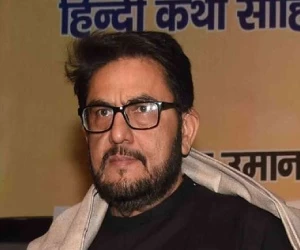
Manoj Rupda is based in Nagpur (Maharashtra) and writes in Hindi. He is the author of the novels Kaale Adhyaay (of which I Named My Sister Silence is a translation) and Pratisansaar; the collections of stories, Dafan tatha Anya Kahaniyan, Saaz Naasaaz, Aamaazgaah, Tower of Silence, Dahan and Dus Kahaniyan; and a book of essays, Kalaa ka Aaswaad. He is a recipient of the Indu Sharma Katha Puraskar and the Vanmali Katha Samman.
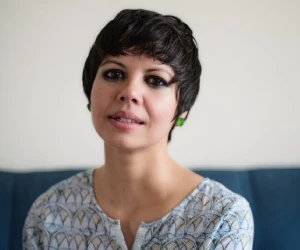
Janice lives between Shillong and New Delhi with a cat of many names. She is the author of Boats on Land: A Collection of Short Stories and Seahorse: A Novel. Her novella The Nine Chambered-Heart, bestselling in India, was published in the UK and in ten other languages including Italian, Spanish, French, and German. She studied English Literature at St Stephen’s College, Delhi, and History of Art at the School of Oriental and African Studies, London. Her novel Everything the Light Touches is out with HarperCollins India, Borough Press UK, and HarperVia USA. It won the AutHer Award for Best Fiction in 2023 and was listed in The New Yorker’s “Best Books of 2022”.
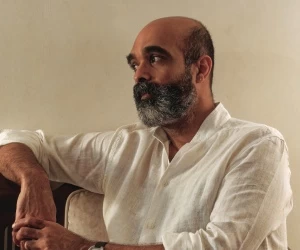
Vikramajit Ram is a Bengaluru-based writer. After graduating from the National Institute of Design in 1990, he practiced as a graphic designer for several years. His first book, Elephant Kingdom: Sculptures from Indian Architecture (2007) was followed by two travelogues, Dreaming Vishnus: A Journey through Central India (2008) and Tso and La: A Journey in Ladakh (2012).
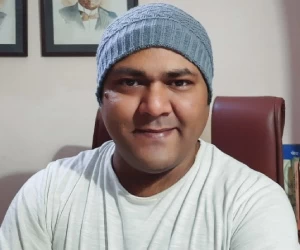
Hailing from Mumbai, Geet Chaturvedi is considered one of the most widely read contemporary writers in Hindi. He has published twelve books of poetry, stories and translations. His poetry collections 'Minimum Main' and 'Khushiyon Ke Guptchar' were included in the Hindi bestseller lists. The English translation of his novel 'Simsim' (translated by Anita Gopalan) has been awarded the globally prestigious 'Pen/Haim Translation Grant Award' by 'Pen America'.
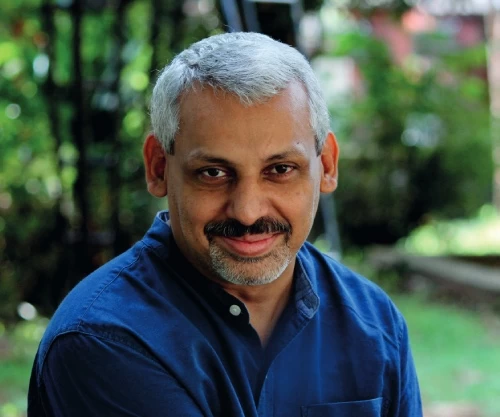
At the age of sixteen, Anees dropped out of school and left home to become a writer. He travelled across India and worked as a bellboy, waiter, shop assistant and ghost writer before joining advertising. He currently works as a Creative Director with FCB India. His published works include Vanity Bagh (winner of The Hindu Literary Prize for Best Fiction 2013), The Blind Lady’s Descendants (winner of the Raymond Crossword Book Award for Best Fiction 2014 and the Kendra Sahitya Akademi Award 2018), The Small-town Sea (winner of the Atta Galatta-Banaglore Literature Festival Book Prize for Best Fiction 2017), and The Odd Book of Baby Names. His works have been translated into French, German and several Indian languages.
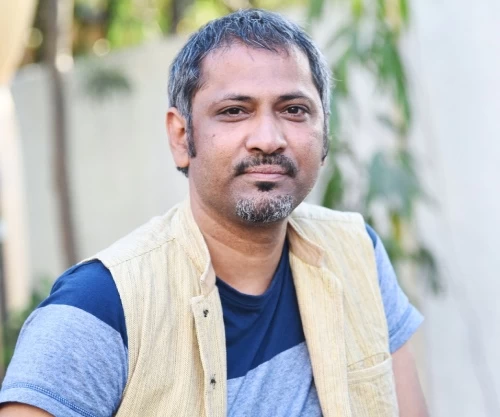
Rahman Abbas is a major contemporary Indian novelist and winner of the Sahitya Akademi award, for the year 2018, for his fourth Urdu novel Rohzin. He has also won two state Sahitya Akademi awards.
Rahman is the author of seven books, including four novels, Nakhalistan Ki Talash (The Search of an Oasis, 2004), Ek Mamnua Muhabbat Ki Kahani (A Forbidden Love Story, 2009), Khuda Ke Saaye Mein Ankh Micholi (Hide and Seek in the Shadow of God, 2011) and Rohzin (The Melancholy of the Soul, 2016).
The latest novel, Rohzin, has been translated into German, English and Hindi. The novel has also received the prestigious LitProm Grant managed by the Swiss and German governments.
Rahman lives in Mumbai and works for Strategic Foresight Group.
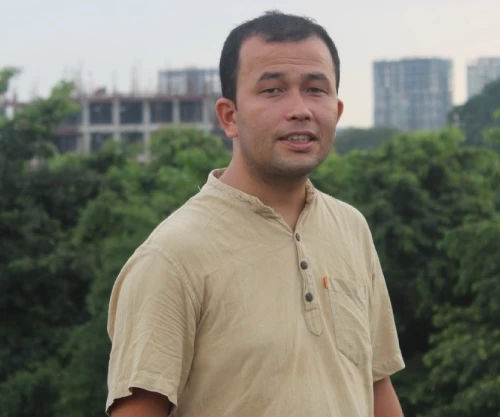
Born and brought up in Kalimpong, India, Chuden Kabimo is an Indian writer writing in the Nepali language. His debut book 1986, a collection of short stories, won the Aashrani Rai Smriti Puraksar, Manipur, in 2017 and the Yuwa Sahitya Akademi Puraskar, in 2018. His novel Faatsung has been translated into three languages— English, Bangla and Hindi (the latter two are due soon)— and published in three countries —India, Nepal and the UK.
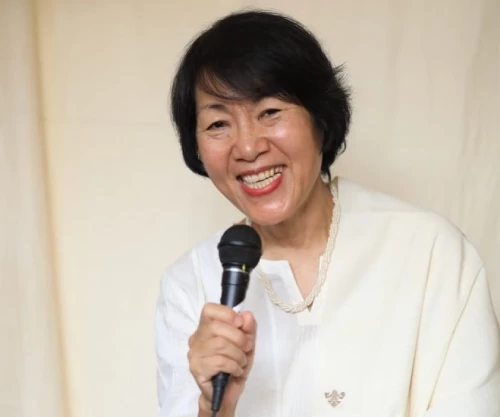
Easterine Kire is a poet, novelist, short-story writer and a writer of children’s books. Her first novel, A Naga Village Remembered, was also the first Naga novel to be published in English. Her other novels include Son of the Thundercloud (winner of the Bal Sahitya Puraskar 2018 and the Tata Literature Live! Book of the Year Award 2017), Bitter Wormwood (shortlisted for the Hindu Prize 2013) and When the River Sleeps (winner of the Hindu Prize 2015). In 2011, she was awarded the Governor’s Medal for Excellence in Naga literature.
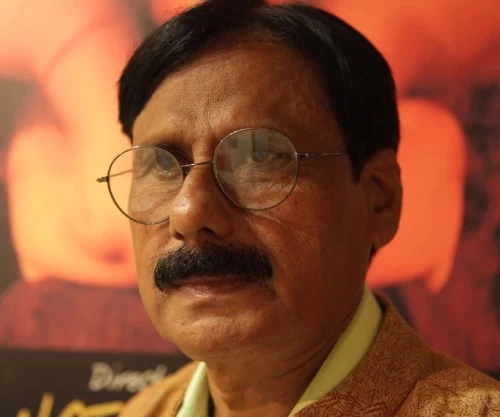
Khalid Jawed is one of the leading Urdu novelists today. He is the author of fifteen works of fiction and non-fiction and is a recipient of the Katha Award, the Upendranath Ashk Award, and the UP Urdu Academy Award. He is a professor at Jamia Millia Islamia University.
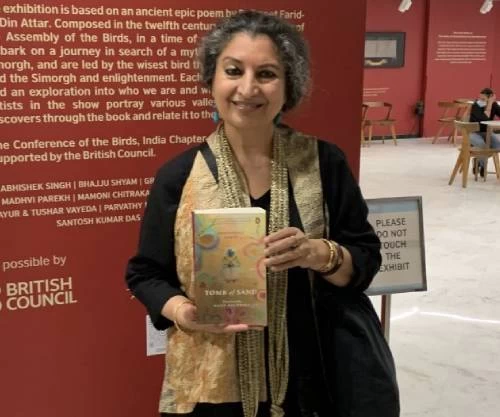
Author of three novels and several story collections, Geetanjali Shree's work has been translated into English, French, German, Serbian, and Korean. She has received and been shortlisted for a number of awards and fellowships, and lives in New Delhi.
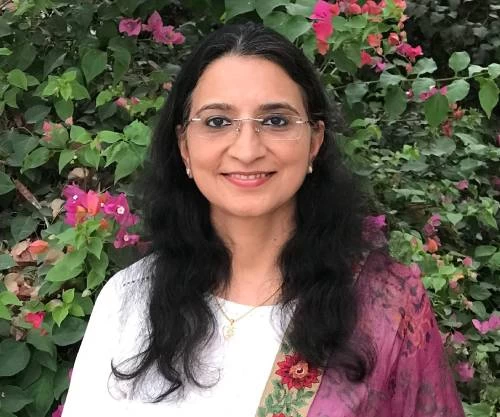
Sheela Tomy is a novelist, short story writer and scriptwriter. Valli is her debut novel, for which she was awarded the Cherukad Award for Malayalam Literature in 2020. She is also the author of a short story collection, Melquíadesnte Pralayapusthakam (Melquíades's Book of Floods), published in 2012. Sheela has won several awards for her short stories, including the Abu Dhabi Arangu Award (2007), the Puzha.com Short Story Award (2008), the Doha Sanskriti Award (2012), the Doha Samanwayam Award (2012) and the Kamala Surayya ‘Neermathalam' Award UAE (2014). Born in Mananthavadi in Wayanad district, Sheela currently resides in Doha, Qatar. Her second novel, Aa Nadiyodu Peru Chodikkaruthu (Do Not Ask the River Her Name), is set to be published later this year.
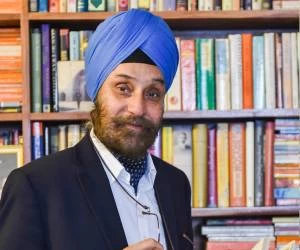
Navtej Sarna was India’s Ambassador to the United States, High Commissioner to the United Kingdom, and Ambassador to Israel. He has also served as Secretary to the Government of India and as the Foreign Office Spokesperson. His earlier diplomatic assignments were in Moscow, Warsaw, Thimphu, Tehran, Geneva, and Washington DC. His literary work includes the novels The Exile and We Weren’t Lovers Like That, the short story collection Winter Evenings, non-fiction works The Book of Nanak, Second Thoughts, and Indians at Herod’s Gate, as well as two translations, Zafarnama and Savage Harvest. He is a prolific columnist and commentator on foreign policy and literary matters, contributing regularly to media platforms in India and abroad.
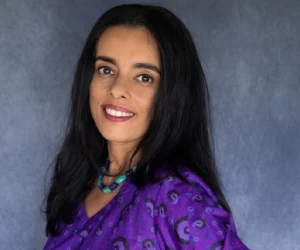
Tejaswini Apte-Rahm is a writer from Mumbai. She is the author of the short story collection - These Circuses That Sweep Through the Landscape, and co-author of The Poop Book! -an environmental education book for children. Tejaswini has worked as a journalist and environmental researcher and has written for Screen, Hindustan Times, the Times of India, and The Asian Age.
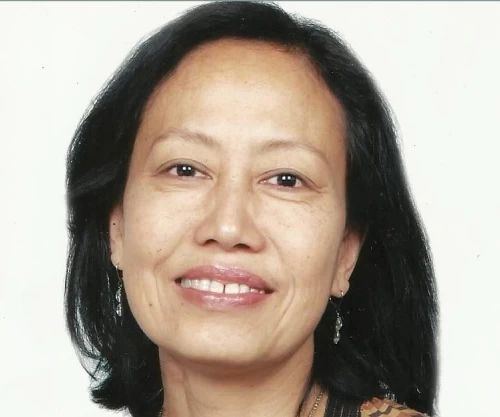
Mamang Dai is a poet and novelist born in Pasighat, Arunachal Pradesh. A former journalist and a Padma Shri awardee, Dai is the author of two collections of poems and works of fiction and non-fiction including the novel The Black Hill that received the Sahitya Akademi Award 2017, in English. Dai lives in Itanagar, Arunachal Pradesh.
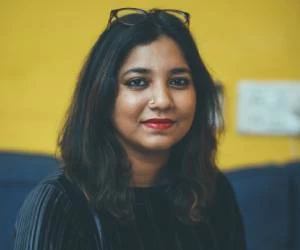
Krupa Ge is a writer based in Chennai. Rivers Remember, her book on the 2015 floods that ravaged Chennai, was published by Context in July 2019. Her reportage and cultural writings have appeared in The Hindu, Firstpost and The New Indian Express, among other Indian and international publications over the last thirteen years. In 2017, she won a Laadli Award for a weekly column on women in cinema, ‘Ms. Representation’. She was awarded the Toto-Sangam Residency Fellowship for the year 2016, and was shortlisted for a Toto Prize in Creative Writing the same year. She is also currently dabbling in screenwriting.
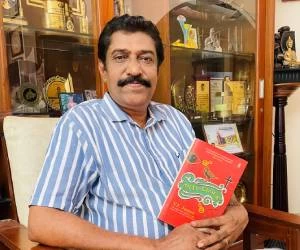
V.J. James writes in Malayalam. Born and brought up in Changanacherry, Kerala, he currently resides in Thiruvananthapuram. An engineer by profession, he worked at Vikram Sarabhai Space Centre. His debut novel Purappadinte Pusthakam was awarded the DC Silver Jubilee Award (1999), Malayattoor Prize and Rotary Literary Award. Other awards include the O.V Vijayan Award and Thikkurissi Award for Anti-Clock, and the Thoppil Ravi Award, Kerala Bhasha Institute Award, Kerala Sahitya Akademi Award, Basheer Puraskaram and Vayalar Award for Nireeshwaran. The English translation of Chorashasthram was shortlisted for the Atta Galatta Bangalore Literature Festival Book Prize. The Malayalam film Munthirivallikal Thalirkkumbol is an adaptation of his short story Pranayopanishath.
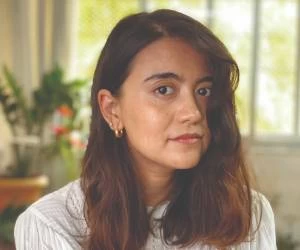
Daribha Lyndem is a writer and civil servant currently living in Mumbai. She was born and raised in Shillong, studied English Literature at St Anthony's College and Delhi University, before joining the Indian Revenue Service.
Name Place Animal Thing is her debut novel. She was named one of the Promising Writers of 2021 and Beyond by digital magazine Feminism in India, and her novel is in a list of ‘Best Summer Reads of 2020’ by Vogue India, and has reviews in The Hindu, The Caravan, and Firstpost.
When she is not writing or working at her day job, she is either redoing her house for the umpteeth time or hoarding skincare products. She shares a flat with her three cats and husband where she writes and gardens.
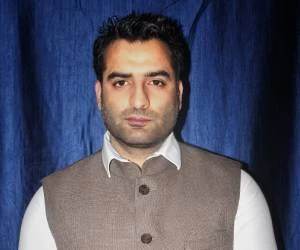
Shabir Ahmed Mir is a writer and poet and has been awarded the Reuel International Prize for fiction in 2017. This is his first novel.
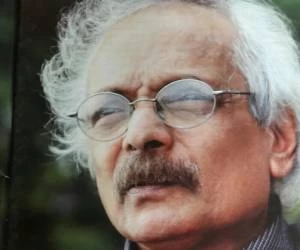
M. Mukundan was born and brought up in Mahe. He rose to critical acclaim and popularity with Mayyazhippuzhayude Theerangalil (1974). His stories and novels have been widely translated into various Indian languages, English and French. He has been awarded Ezhuthachan Puraskaram, the highest literary honour given by the Government of Kerala, the Crossword Book Award twice, first in 1999 for On the Banks of the Mayyazhi and again in 2006 for Kesavan’s Lamentations, and the Sahitya Akademi award and N.V. Puraskaram for Daivathinte Vikrithikal (God’s Mischief). His other major works include Kesavante Vilapangal (2009) and Prasavam (2008). He was presented with the insignia of Chevalier in the Order of Arts and Letters by the French government in 1998. He also served as the president of the Kerala Sahitya Akademi from 2006 to 2010. Four of his books have been adapted into award-winning films. Delhi Gathakal (2011), translated as Delhi: A Soliloquy, is based on his experiences of living and working in Delhi for forty years as a Cultural Attaché at the French embassy. In 2004, he retired from that position and returned to Mahe, his hometown.

Lindsay Pereira is a journalist and editor. Born and raised in Bombay, he studied at St Xavier's College and the University of Mumbai and holds a PhD in literature for his work on gender attitudes implicit in nineteenth-century Indian fiction. He was co-editor with the late Eunice de Souza of Women's Voices: Selections from Nineteenth and Early-Twentieth Century Indian Writing in English, published by Oxford University Press. This is his first novel.
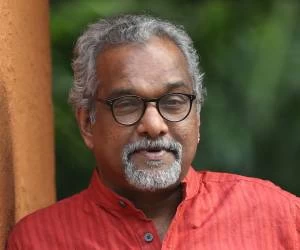
Thachom Poyil Rajeevan writes in English and Malayalam. He has published three poetry collections, He Who Was Gone Thus, A Yaksha in America and Kannaki, and a novel, Undying Echoes of Silence, in English, and six poetry collections, three novels, a travelogue and a collection of essays in Malayalam. He has also edited an anthology of poems, Third Word: Post Socialist Poetry, with the Croatian poet Lana Derkac. His novel K.T.N. Kottoor: Ezhuthum Jeevithavum won the Kerala Sahitya Akademi award, and two of his novels were made into motion pictures in Malayalam.
Rajeevan's poems have been translated into more than 14 languages, including French, Italian, Polish, Macedonian, Uzbek, Croatian, Hebrew and Chinese. An alumnus of Iowa University's International Writing Program, he has been a resident writer at Ledig House, Hudson, in New York, the Rockefeller Foundation's Bellagio Center in Italy and the Shanghai Writers' Association in Shanghai.
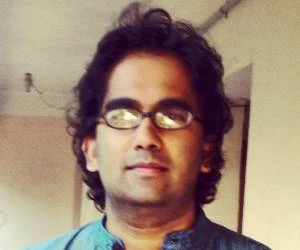
Keerthik Sasidharan was born in Palakkad, Kerala, and was trained as an economist. His writings have appeared in various publications, including as a columnist for The Hindu and Open magazine. He lives in New York City.

Irwin Allan Sealy was born in Allahabad and educated at Lucknow and Delhi. He is the author of The Trotternama. His other novels include The Everest Hotel, The Brainfever Bird and Red. His Yukon to Yucatan is the account of an overland journey from the Arctic Sea to the Gulf of Mexico; more recent travels produced the pen-and-ink drawings of his China Sketchbook. Zelaldinus, his portrait of Jalaluddin Akbar, is a cycle of Fatehpur Sikri poems. A memoir, The Small Wild Goose Pagoda, is set in Dehra Dun, where he now lives.

Rijula Das received her PhD in Creative Writing in 2017 from Nanyang Technological University, Singapore, where she taught writing for two years. She is a recipient of the 2019 Michael King Writers Centre Residency in Auckland and the 2016 Dastaan Award for her short story ‘Notes from a Passing’. Her short story ‘The Grave of The Heart Eater’ was longlisted for the Commonwealth Short Story Prize in 2019. A Death in Shonagachhi is her first novel. Rijula is from West Bengal and lives in Wellington, New Zealand.
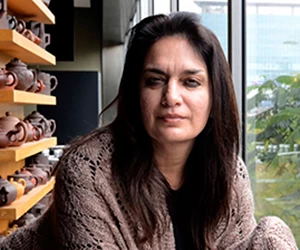
Manjul Bajaj graduated in Economics from Lady Shriram College and did a Masters in Rural Management from IRMA in Gujarat and a Masters in Environmental Science from the University of London. She worked in the field of environment and rural development before she became a writer. She is the author of Come, Before Evening Falls (shortlisted for the Hindu Literary Prize in 2010) and Another Man’s Wife (shortlisted for the Hindu Literary Prize in 2013). She has also written two books for children—Elbie’s Quest and Nargisa’s Adventures. Her latest novel In Search of Heer was longlisted for the Mathrubhumi Book of the Year 2020 prize and shortlisted for the Auther Awards, 2020.
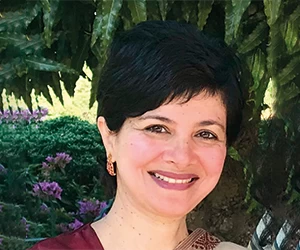
Jahnavi Barua is an Indian writer based in Bangalore. Next Door (Penguin India, 2008), her debut collection of short stories was longlisted for the Frank O’Connor International Short Story Award. Her next, a novel called Rebirth (Penguin India, 2010), was shortlisted for the Man Asian Literary Prize and the Commonwealth Writers’ Prize. The third, Undertow, a novel, was published by Penguin Random House India (Viking Books) in February 2020. Her short fiction has been widely anthologized and her work is part of several university syllabi. Jahnavi studied medicine at university but is not a practicing doctor. She was born in Guwahati and raised between Assam, Meghalaya, Delhi and Manchester.
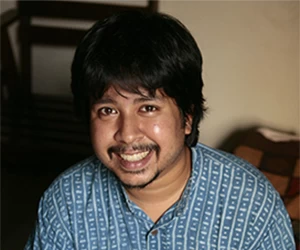
Samit Basu is an Indian novelist, film director and screenwriter. Samit is best known for his fantasy and science fiction work. His first novel, The Simoqin Prophecies, published by Penguin India in 2003, when Samit was 23, was the first book in the bestselling Gameworld Trilogy and marked the beginning of Indian English fantasy writing. The other books in the trilogy are The Manticore’s Secret and The Unwaba Revelations. His debut film, House Arrest, was released as part of Netflix’s International Originals in 2019, and was one of Netflix’s top 5 most viewed Indian films that year. He co-wrote/directed the film with Shashanka Ghosh.
Samit also writes for younger readers. Samit was born in Calcutta, educated in Calcutta and London, and currently works between Delhi and Mumbai.
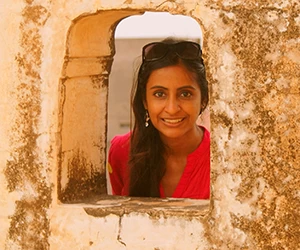
Born in Bombay, Dharini Bhaskar has at various points also called Britain, Greece and Delhi home. Dharini was the former editorial director of Simon and Schuster India and was one of five young Indian writers selected for Caravan's Writers of India Festival, Paris. She has been published in an anthology, Day's End Stories, and in Hindu Blink and Arre, among other publications. When she isn't writing, Dharini backpacks, reads, and finds immense joy in being brought up by her son.
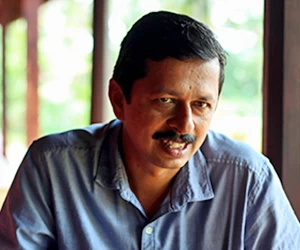
S. Hareesh is the author of three short-story collections: Adam, which received the Kerala Sahitya Akademi Award, Rasavidyayude Charithram, and Appan. He is also a recipient of the Geetha Hiranyan Endowment, the Thomas Mundassery Prize, and the V.P. Sivakumar Memorial Prize. Hareesh is also the author of two screenplays - for the film Aedan, which received the Kerala State Award for best screenplay in 2017, and for the 2019 film Jallikattu, which premiered at the Toronto Film Festival and won a silver peacock at the International Film Festival of India. Hareesh works in the revenue department, and hails from Neendoor in Kottayam district, Kerala.
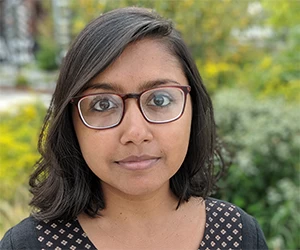
Megha Majumdar was born and raised in Kolkata, India. She moved to the United States to attend college at Harvard University, where she was a Traub scholar, followed by graduate school at John Hopkins University, where she studied social anthropology. She works as an associate editor at Catapult and lives in New York City. A Burning is her first book.
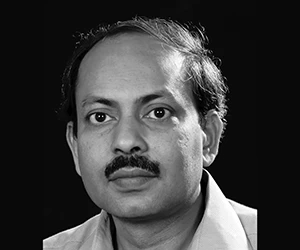
Ashoke Mukhopadhyay, an MBA (Calcutta University) and a corporate communications professional, had made a foray in the arena of literature with a host of startling researched-based articles and insightful documentations. Mukhopadhyay won the coveted Ananda Snowcem Award twice for his articles. Mukhopadhyay's penchant for research and finer details are reflected in his novels - Agnipurush (Bio fiction based on the not-so-known revolutionary nationalist of 1906, Ullaskar Dutt), Atta N'tar Surya (a docu-novel portraying the Naxalite Movement in the 1970s, its downfall and subversions).
Both the novels turned out to be bestsellers, earned rave reviews and were well-accepted by the Bengal literati.
Mukhopadhyay's zeal for seamless stitching of facts with the imagination has been best reflected in his latest novel Abiram Jwarer Roopkatha (translated by Arunava Sinha as 'A Ballad of Remittent Fever'), which, according to the author, 'is the outcome of 5-year labour of love'.
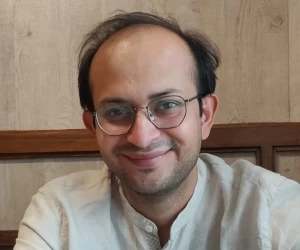
Tanuj Solanki is an Indian writer who is founder of Bombay Literary Magazine and author of Diwali in Muzaffarnagar, Neon Noon, The Machine is Learning and Manjhi’s Mayhem. In 2019, he was awarded the Sahitya Akademi Yuva Puraskar for his second book, Diwali in Muzaffarnagar. Tanuj's short fiction has been published in the Caravan, Hindu Business Line, DNA, Out of Print, and several other publications. He lives in Gurugram with his wife.
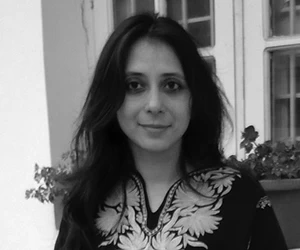
Annie Zaidi is the author of Bread, Cement, Cactus: A memoir of belonging and dislocation, Prelude to a Riot, Gulab, Love Stories # 1 to 14, Known Turf: Bantering with Bandits and Other True Tales, and the editor of Unbound: 2000 Years of Indian Women's Writing. She is the recipient of the Nine Dots Prize (2019) and The Hindu Playwright Award (2018) for her play, Untitled 1. Her work has appeared in various anthologies and literary journals including The Griffith Review, The Aleph Review, The Massachusetts Review, The Charles River Journal, and The Missing Slate.
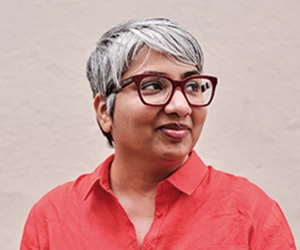
Deepa Anappara was born in Kerala and worked as a journalist in Mumbai and Delhi. Her reports on the impact of poverty and religious violence on the education of children won the Developing Asia Journalism Awards, the Every Human has Rights Media Awards, and the Sanskriti-Prabha Dutt Fellowship in Journalism. Her debut novel Djinn Patrol on the Purple Line was longlisted for the Women’s Prize for Fiction 2020. A partial of the novel won the Lucy Cavendish Fiction Prize, the Deborah Rogers Foundation Writer’s Award, and the Bridport/Peggy Chapman-Andrews Award for a First Novel. It is being translated into 22 languages.
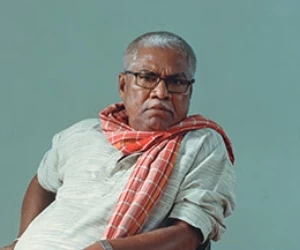
Manoranjan Byapari writes in Bengali. Some of his important works include Chhera Chhera Jibon, Ittibrite Chandal Jibon and the Chandal Jibon trilogy. In 2019, he was awarded the Gateway Lit Fest Writer of the Year Prize. Also, the English translation of his novel Batashe Baruder Gandha (There’s Gunpowder in the Air) was shortlisted for the JCB Prize 2019, the DSC Prize for South Asian Literature 2019, the Crossword Prize 2019 and the Mathrubhumi Book of the Year Prize 2020.
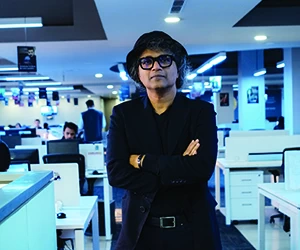
Born in 1996 in Bihar, Raj Kamal Jha is a prolific journalist and writer. He is the chief editor of The Indian Express. He has been awarded Journalist of the Year at the Red Ink Awards by the Mumbai Press Club in 2017. Jha's first novel, The Blue Bedspread, won the 2000 Commonwealth Writers' Prize for Best First Book (Eurasia) and was a New York Times Notable Book of the Year. His second novel, If You Are Afraid of Heights, was a finalist for the Hutch-Crossword Book Award in 2003. His fiction has been translated into more than a dozen languages. The City and the Sea is his fifth novel.
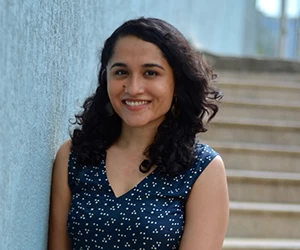
Amrita Mahale was born in Mumbai and grew up in five cities across India. She studied aerospace engineering at IIT Bombay and Stanford University. Amrita was part of the Sangam House writing residency in 2017-18 and her writing has appeared in Hindustan Times, Scroll, Himal Southasian and Brown Paper Bag. This is her first novel.
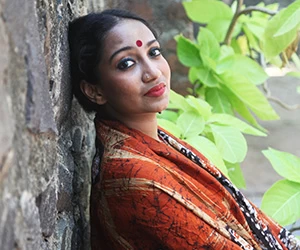
Sharanya Manivannan was born in India in 1985 and grew up in Sri Lanka and Malaysia. She has published two collections of poems Witchcraft and The Altar of the Only World, and a children’s book The Ammuchi Puchi. Her short-story collection The High Priestess Never Marries won the 2015-16 South Asia Laadli Media and Advertising Award for Gender Sensitivity (Best Book – Fiction), was shortlisted for the TATA Lit Live! (First Book Award – Fiction), and longlisted for the Atta Galatta – Bangalore Literature Festival Book Prize. Her weekly column, ‘The Venus Flytrap’ is published in The New Indian Express. The Queen of Jasmine Country is her first novel.
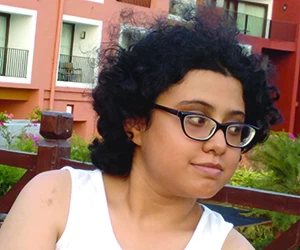
Mukta Sathe is a young lawyer who has worked in Mumbai and Pune. She is interested in constitutional law and enjoys travel, literature and sports. A graduate of Indian Law School, Pune, she has researched laws such as Protection of Children from Sexual Offences Act, Pre-Conception and Pre-Natal Diagnostic Techniques Act and the Protection of Women from Domestic Violence Act. A cat lover, Mukta lives in Pune, her hometown.
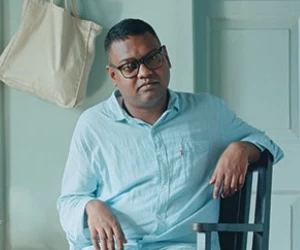
Hansda Sowvendra Shekhar writes in English; and translates into English from Santali, Hindi, and Bengali. His novel, My Father’s Garden, was shortlisted for the JCB Prize for Literature 2019. His collection of stories, The Adivasi Will Not Dance, was shortlisted for The Hindu Prize; while his debut novel, The Mysterious Ailment of Rupi Baskey, won the Sahitya Akademi Yuva Puraskar, was shortlisted for The Hindu Prize and a Crossword Book Award, and longlisted for the International Dublin Literary Award. His book for children, Jwala Kumar and the Gift of Fire, was shortlisted for a Crossword Book Award. His writings have been published in Frontline, The Caravan, Mint Lounge, Reader’s Digest, The Indian Quarterly, The Hindu, The Indian Express, The New York Times, Fifty-two, and other places; while his translations have been published in Asymptote, Poetry at Sangam, The Dalhousie Review, and other places.

Madhuri Vijay was born and raised in Bengaluru and now lives in Hawaii where she teaches children at a school is a schoolteacher. "A fortunate benefit of teaching young children,” she says "is that they neither know nor care about how many words you managed to write that day or whether you’ve hit upon the perfect metaphor - working with them is a refreshing and humbling reminder to keep one’s work in proper perspective.” She’s a graduate of the Iowa Writers’ Workshop and the recipient of a Pushcart Prize. Her writing has appeared in Best American Non-Required Reading, Narrative Magazine and Salon, among other publications. In 2010, she wrote a short story about a mother and a daughter and a Kashmiri man. "It was a maudlin story-abysmal, really-but I grew interested in writing a novel about Kashmir.” The Far Field is her first book.
-1692378646.webp)
Born in 1945, Paul Zacharia is one of Kerala’s most beloved writers. He has published over 50 works including novels, essay collections and children’s fiction. Zacharia has also written travelogues on Africa, England, Saudi Arabia, China and the Kumbh Mela. A Distinguished Fellow of the Kerala Sahitya Akademi, he has received the Kendra Sahitya Akademi and Kerala Sahitya Akademi awards. He lives in Thiruvananthapuram, Kerala.
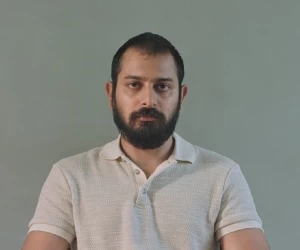
Roshan Ali was born and raised in Bengaluru. After taking a college poetry course, he began writing poems inspired by T.S. Eliot and Leonard Cohen. He began writing a novel after dropping out of the Srishti School of Art, Design and Technology in 2008. He wrote several different drafts of Ib’s Endless Search for Satisfaction including one where all the characters spoke like Irishmen. After battling depression and more than twelve different drafts over a decade, he finally finished the novel in 2017. He lives in Bengaluru with his wife and two dogs.
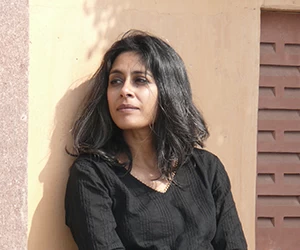
Anuradha Roy was born in 1967 in Kolkata. She published her first few stories when she was only fourteen, however, her first novel came out when she was forty: "I don't think I could have written it earlier - something in my world and myself needed to change before I could write fiction." Now she feels incomplete when not carrying a novel-in-progress around in her head. She designs book covers for the publishing house she is a part of and if she didn't write, making books is what she would be doing full time. She is also a potter: "I don't feel the need to become a ceramic artist or to sell or exhibit. It gives me a deep, wonderful pleasure to just drink coffee from a mug or eat in a bowl I first knew as a bucket of clayey slurry." Her last novel Sleeping on Jupiter won the DSC Prize for South Asian Literature and was longlisted for the Man Booker Prize. She lives in Ranikhet.
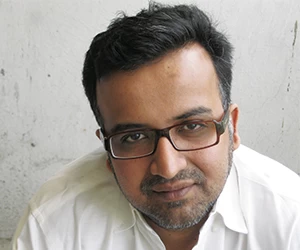
Amitabha Bagchi was born in 1974 in Delhi. He is the author of three novels. The first, Above Average, was a bestseller. His second novel, The Householder, was published to critical acclaim and the third, This Place, was shortlisted for the Raymond Crossword Book Award 2014. He picked up the notion that telling stories was something worth doing when his father told stories at the dining table - of encounters with amusing or important people, or interesting things he had come across in his travels. "His tellings were always laced with a kind delight in the world."
Bagchi is also a computer science professor in New Delhi. His day job throws up complex and engaging problems that he thinks is very useful to have when you need to think away from a writing project, which is often. The writing, in turn, acts as an escape route that allows him to put knotty research problems on the backburner. A colleague once asked him: "One of these is a hobby, the Computer Science or the writing. Which one?" So I told him, honestly, that I didn't know. They are both hobbies, and they are both my job. Bagchi lives in Delhi.
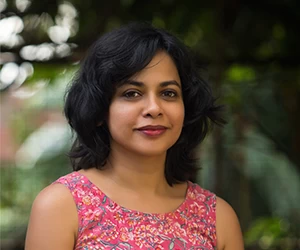
Devi Yesodharan was born in 1980 in Kollam, Kerala. She grew up in the Middle East and changed schools six times, because of her parents' frequent moves. "If anything shaped my worldview and my writing, it is not having had the opportunity to grow roots, and always being the new kid in town." She tried to build bridges with people by telling stories, always attempting a narrative out of a fragmented life - one that made sense to her. Perhaps that is one of the reasons the main character in Empire, Aremis, is a migrant. "Her need to belong, her striving and her homesickness, are all very familiar."
Yeshodharan loves art and is a fan of the American painter Georgia O'Keefe. She has always had a day job, partly because she feels she wouldn't manage the writing if she had to face it every day alone with no interruptions. She lives in Bangalore and works as a co-founder on Trendlyne, a financial investing platform. This is her first novel.
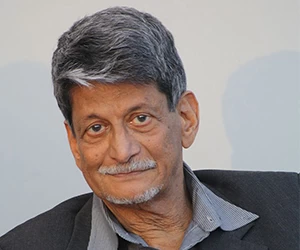
Kiran Nagarkar was born in 1942 in Mumbai. He is the author of the critically acclaimed novel Cuckold, which won the Sahitya Akademi Award in 2001. One of the sharpest critics of India's socio-political scenario, he is also the author of the play Bedtime Story, which was banned for years, and the screenplay Black Tulip, published as a single volume in 2015. Nagarkar also writes in Marathi. While editing a Marathi magazine for a friend's father, he began writing his very first short story in his mother tongue, with which he had lost all contact for nearly 18 years. From that emerged his first novel, Saat Sakkam Trechalis, in 1974. "We live in a country that has at least 24 major languages but we are so narrowly self-centred. All you need to do is learn two or three other languages and you will be lost forever in the world's greatest treasure houses."
He enjoys music, books, travel, movies, nature and life. Any genuine art, he says, has always got its mouth, ears and eyes open to swallow what it sees, hears, tastes, so that it can transform whatever it has imbibed when the situation and the art demand it.
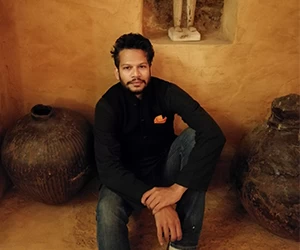
Chandrahas Choudhury was born in 1980 in Hyderabad. His first novel, Arzee the Dwarf, was shortlisted for the Commonwealth First Book Prize. He grew up reading lots of books, in a time when childhood had fewer distractions of an audio-visual kind. At some point a productive jealousy kicked in and he began to want to write them. "Nothing creates a writer as much as his own books. As soon as I had written one, it led me in the direction of another. Slowly you understand that writing books is a great way be to a living, thinking member of your society and you take that thought, that responsibility, that excitement, that anger, and run with it." If not a writer, he would have done good work in cinema or worked as a cricket or football commentator.
In his free time he loves to cook, wander through cities and continents, and play football. His real skill lies in throwing dinner parties for friends, going shopping for them in the day, and meeting all the tradesmen of the neighbourhood. He cannot do without his afternoon naps, which is why he likes to be self-employed. He lives between Delhi, Mumbai, and Bhubaneshwar.
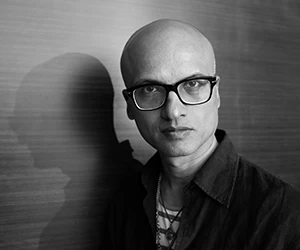
Jeet Thayil was born in 1959 in Mamalaserrie, Kerala. With a father who is a writer too, he grew up to the sound of a manual typewriter in various small apartments in Bombay, Hongkong and New York. He believes that the actual trigger for any art is the presence of a psychic wound that will never heal. His first written work was a poem. Since then he has published five collections of poetry, of which These Errors Are Correct won the 2013 Sahitya Akademi Award. His first novel Narcopolis won the DSC Prize for South Asian Literature 2012 and was a finalist for the Man Booker Prize, the Man Asian Prize and the Commonwealth Prize. "Disguise is an essential part of the enterprise," he said, when asked if he did any secrets in his books that only a few people will find.
Thayil is also a musician and songwriter. He wrote the libretto for Babur in London, which toured Switzerland and the United Kingdom in 2012. He often performs with his Delhi band: Still Dirty. He enjoys art and travels long distances to experience it. For him, cooking is a pleasure and a meditation. To sustain himself, he needs to read. It is the only thing he cannot do without. He lives in Bangalore.
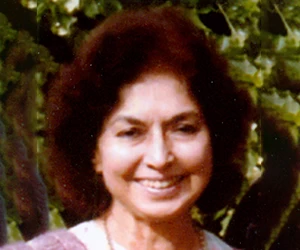
Nayantara Sahgal was born in 1927 in Allahabad. Her trigger to write was the fact that she had grown up during the years when Indians were fighting for freedom - a fight in which her entire family was involved: "It became the stuff of my fiction and non-fiction … my background and my values." She mostly wrote when the children were at school: "My writing was not supposed to interfere with my role as wife and mother. It was supposed, as was a woman, to know its place."
She loves music, both Indian and western classical. She also loves old Hindi movie songs, jazz and swing, Sinatra and the like. Art History was one of her favourite subjects at Wellesley College, near Boston: "I don't know what I would do in a world without music and art. Or a world without great writing. These are what sustain and comfort and inspire, and keep one company." She is fascinated with politics that informs, and forms the atmosphere, of her fiction. She was awarded the 1986 Sahitya Akademi Award for her novel Rich Like Us in 1985. She lives in Dehradun.
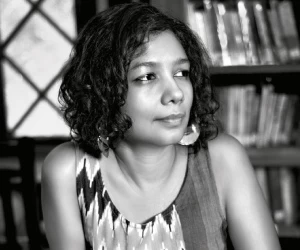
Shubhangi Swarup was born in 1982 in Nashik. She is a print journalist, filmmaker, novelist and an educationist. Talking of Latitudes of Longing, which is her first novel, she says: "I wanted to use my first chapter in the application for a fellowship but I was told that it lacked flow. This naturally upset me." What was initially a disjointed and disconnected way of telling a story, staccato almost, eventually became her strength. "The words on the page would freeze up when I tried to impose my will.
She has volunteered for diverse causes since her teens. She has studied conflict management, taught street children and worked against sexual violence. She calls herself "a hopeless backpacker" and loves to travel, which is one of the reasons why the novel goes through so many beautiful and intriguing places. She lives in Mumbai.
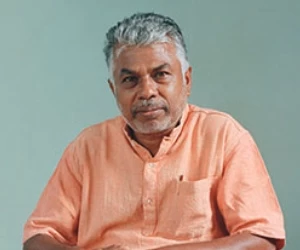
Perumal Murugan is an Indian author, scholar, and literary chronicler who writes in Tamil. He has written twelve novels, six collections of short stories, six anthologies of poetry, and many non-fiction books. Ten of his novels have been translated into English: Seasons of the Palm, which was shortlisted for the Kiriyama Prize in 2005, Current Show, One Part Woman, A Lonely Harvest, Trail by Silence, Poonachi or the Story of a Goat, Resolve, Estuary, Rising Heat, and Pyre. He was a professor of Tamil at the Government Arts College in Salem Attur and Namakkal.
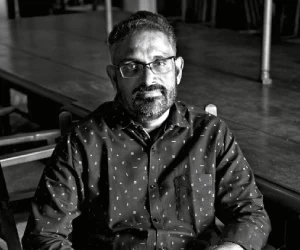
Benyamin was born 1971 in Nhettur, Kerala. He moved to Bahrain in 1992. Until the age of twenty-one, he knew nothing of literature: "Cricket was my world, better living standards were my aim." When he reached The Gulf, he felt a loneliness that triggered reading and eventually led to writing: "I began with letters to friends. They accepted my words." Today he is an author of over twenty books. Aadujeevitham or Goat Days is his most successful novel and has won him the Kerala Sahitya Akademi Award. He returned from the Middle East to his native state of Kerala in 2013, two years after the Arab revolution ended. A former electrical engineer and now a full-time writer, he lives alone and cooks for himself daily: "I feel, and my friends certify, that I have a talent in it too."
Stay updated on what's new at #TheJCBPrize
